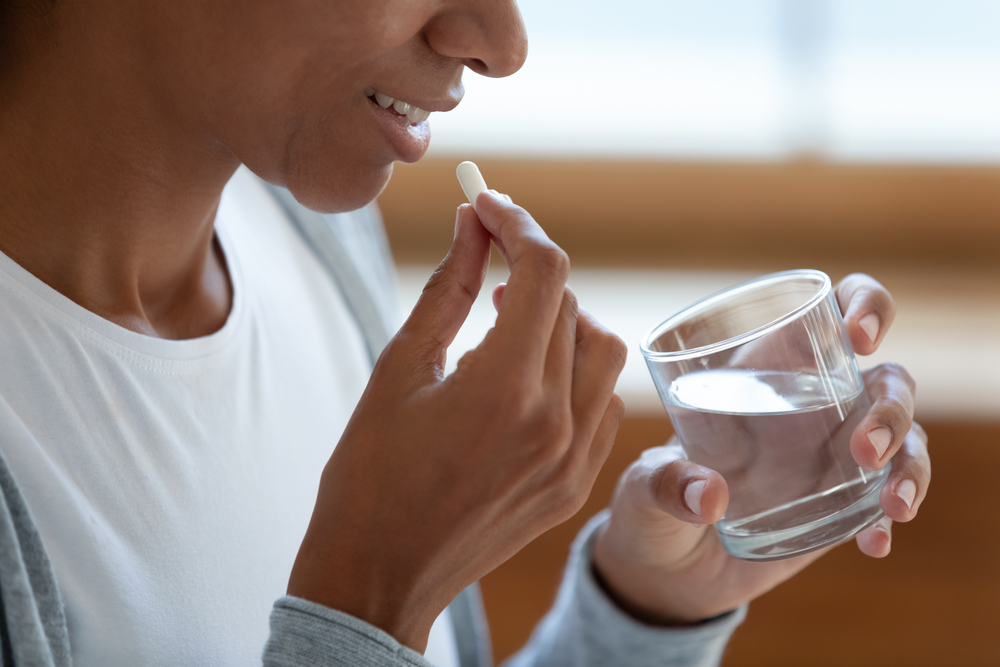As women age, their nutritional needs change. Multivitamins specifically formulated for women over 50 can help ensure they get the essential nutrients they need. Here are some of the best options available:
1. One a Day Women’s 50+ Multivitamins
These multivitamins are designed to support bone, heart, eye, and immune health. They include calcium, zinc, folic acid, and vitamins A, B6, B12, C, D, and E. They are taken once a day and are free of gluten, wheat, soy, and dairy.
- Pros: Taken once a day, inexpensive, third-party tested
- Cons: Some complain about the taste
2. Centrum Minis Women 50+
Centrum Minis are 50% smaller than standard pills, making them easy to swallow. They are free of gluten, artificial flavors, and sweeteners.
- Pros: Smaller size, non-GMO, gluten-free
- Cons: Need to take two a day
3. Nature Made Multivitamin For Her 50+
These pills contain 22 key nutrients, including vitamins to support bone health, immune health, and energy metabolism. They are third-party certified and come in both softgel and tablet forms.
- Pros: Take once a day, third-party tested, good nutrient coverage, gluten-free
4. Nature’s Way Alive! Women’s 50+ Gummy Multivitamin
These gummies feature eight different B vitamins to support brain and cellular health. They are vegetarian and free of potential allergens like dairy, wheat, peanut, and egg.
- Pros: Easy to chew, delicious taste, gluten-free, vegetarian
5. Centrum Silver Women’s Multivitamin for Women 50 Plus
This popular multivitamin contains important micronutrients like calcium, zinc, beta-carotene, and vitamins B, D3, C, and E, designed to support heart, brain, eye, and bone health. They are non-GMO and gluten-free.
- Pros: Gluten-free, good range of nutrients, taken once a day
6. Persona Personalized Vitamins
Persona’s personalized vitamins are created after answering a few questions about your health and personal needs. Each serving is individually wrapped, making them easy to take on the go.
- Pros: Custom made, no fillers, easy to travel with
7. SmartyPants Inc. Women’s Masters 50+ Multivitamin
This gummy multivitamin is packed with 17 essential nutrients, including omega-3 EPA/DHA, lutein/zeaxanthin, CoQ10, vitamin D3, and vitamin B12. It’s third-party tested and comes in a berry flavor.
- Pros: Broad nutritional coverage, good flavor, third-party tested
8. Garden of Life Mykind Organics Women 55+
This multivitamin is vegan, certified USDA organic, and non-GMO. It’s made from real fruits, vegetables, and herbs, providing a comprehensive range of vitamins and minerals.
- Pros: USDA organic, non-GMO, made from whole foods, third-party tested
9. X Gold Health Vegan Women’s Daily Multivitamin
This vegan, non-GMO vitamin includes crucial ingredients like vitamin D, vitamin B12, and folic acid. It also includes a special “superfood blend” of cranberry, kale, ginger, turmeric, and ginkgo biloba.
- Pros: Vegan, non-GMO, easy to swallow, third-party tested
- Cons: Need to take 2 per day
10. Thorne Research Women’s Multi 50+
This multivitamin features highly absorbable forms of nutrients, including calcium, magnesium, and vitamins A, B12, B6, and D. It’s free of gluten, dairy, and soy, and contains lutein for eye health.
- Pros: Highly absorbable forms of nutrients, gluten-free, dairy-free, soy-free
- Cons: Dosage is 3-6 per day
How to choose the best multivitamin for women over 50
When choosing a multivitamin, look for essential nutrients like B12, calcium, vitamin D, magnesium, fiber, riboflavin (B2), vitamin E, and folic acid. Consider pill size and dosage, and opt for third-party certified options to ensure quality.
When is the best time to take multivitamins?
The best time to take a multivitamin is whenever you’re most likely to remember it. Take it with a meal that includes some fat to help with absorption.
Always consult with your doctor for individualized recommendations.
Note: Dietary supplements are not medicines and are not intended to treat, diagnose, mitigate, prevent, or cure diseases. Be cautious about taking dietary supplements if you are pregnant or nursing. Also, be careful about giving supplements to a child, unless recommended by their health care provider.





